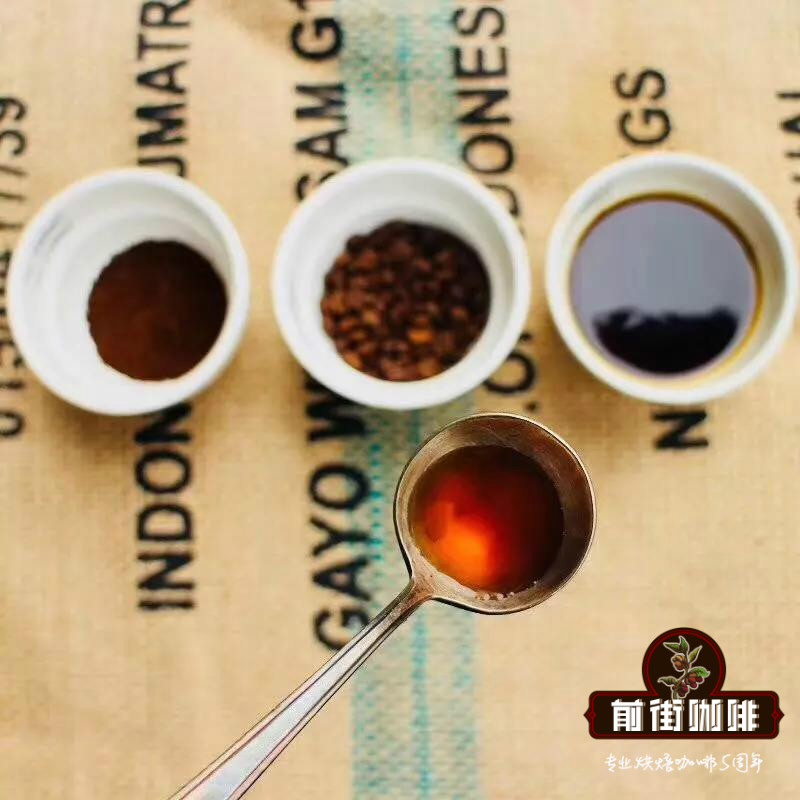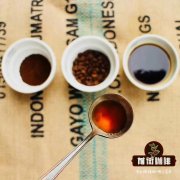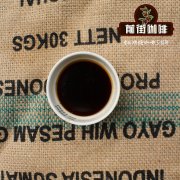Nicaraguan Coffee Industry introduction to Nicaraguan Coffee Matagalpa (Matagalpa)

Professional coffee knowledge exchange more coffee bean information please follow the coffee workshop (Wechat official account cafe_style)
Nicaragua is an economically backward agricultural country, is one of the poorest countries in Central America, the unemployment rate is very high, people live in poverty, and coffee is Nicaragua's pillar industry, producing nearly 100,000 tons of coffee beans every year. Due to the poor economic foundation, the coffee industry is still relatively backward, and coffee farmers are also in a relatively poor state. The growing conditions in Nicaragua are not inferior to those in Central American countries. They are grown in shaded coffee at high elevations. The taste is round and balanced with less sharp acidity. The main unknown factor is that war and hurricanes have made a single farm unsustainable. There is no historical data for raw bean merchants to track and access farm data. Like many Central American countries, their turbulent colonial history has hindered the development of high-quality coffee. Until 2003, good coffee continued to emerge one after another. As a laggard, they have made quite a sensation! Nicaraguan coffee of high quality is in the forefront of coffee beans in the world and enjoys a good reputation.
The suitable climate provides an excellent growth environment for the cultivation of coffee. The mineral-rich pozzolanic soil provides abundant nutrients for the cultivation of coffee trees. High-quality Nicaraguan coffee is also grown in the northern and central highlands of the country. Coffee is a pillar industry in Nicaragua, producing nearly 100,000 tons of coffee beans every year. Many people who have tasted Nicaraguan coffee will give excellent comments. It is full-bodied, smooth and delicate, with a slightly bitter finish, like a faint taste in a wine.
The best coffee is produced in Matagalpa. The coffee produced here is highly respected by coffee lovers all over the world and gradually valued by the boutique community. Abundant precipitation, suitable temperature, high altitude, fertile soil and unique planting ecology are the prerequisites for creating high-quality Nicaraguan coffee.
Traditional Nicaraguan coffee farmers are used to using water washing method for subsequent processing of coffee fruits. Coffee farmers are more accustomed to using water washing to ensure that the flavor of raw coffee beans is more stable and clean. it was not until about 2009 that the traditional attitudes of coffee farmers changed and began to try processing methods such as full sun and honey in more areas.
In order to ensure the quality of coffee, the manual picking method is used to pick the fully ripe fruits one by one, which usually takes three times to complete. Although the manual picking method has high labor cost and low picking efficiency, it can greatly protect the plant from being hurt in the picking process, and the mature fruit will have better sweetness at the same time. The efforts of the producers have not been in vain, and the coffee from Lemon Manor won the second place in the Nicaragua Excellence Cup COE National Competition in 2008. This bean has a beautiful appearance, delicate and rich flavor after washing, with aromas of fruit, vanilla and cream, and has gained more attention since then.
Important Notice :
前街咖啡 FrontStreet Coffee has moved to new addredd:
FrontStreet Coffee Address: 315,Donghua East Road,GuangZhou
Tel:020 38364473
- Prev

Flavor characteristics of Nicaraguan Ross Congo Manor Coffee Nicaragua Los Congo Manor
Professional coffee knowledge exchange more coffee bean information please follow Coffee Workshop (Wechat official account cafe_style) Nicaragua Finca Los Congos Guaros Congo Manor: Los Congo Finca Los Congos: new Segovia NuevaSegovia Variety: Verasach Villa Sarchi altitude: 1350-1650 treatment: solarization
- Next

Aristocratic coffee-Bali Golden Coffee | Golden Coffee is an improved coffee variety in Bali.
Professional coffee knowledge exchange more coffee bean information please follow the coffee workshop (Wechat official account cafe_style) Bali Golden Coffee is famous. The so-called golden coffee refers to the improved coffee varieties peculiar to Bali. The coffee trees of the most common "Arabica" varieties in the world are grafted onto the branches and leaves of the "Robusta" varieties.
Related
- Does Rose Summer choose Blue, Green or Red? Detailed explanation of Rose Summer Coffee plots and Classification in Panamanian Jade Manor
- What is the difference between the origin, producing area, processing plant, cooperative and manor of coffee beans?
- How fine does the espresso powder fit? how to grind the espresso?
- Sca coffee roasting degree color card coffee roasting degree 8 roasting color values what do you mean?
- The practice of lattes: how to make lattes at home
- Introduction to Indonesian Fine Coffee beans-- Java Coffee producing area of Indonesian Arabica Coffee
- How much will the flavor of light and medium roasted rose summer be expressed? What baking level is rose summer suitable for?
- Introduction to the characteristics of washing, sun-drying or wet-planing coffee commonly used in Mantenin, Indonesia
- Price characteristics of Arabica Coffee Bean Starbucks introduction to Manning Coffee Bean Taste producing area Variety Manor
- What is the authentic Yega flavor? What are the flavor characteristics of the really excellent Yejasuffi coffee beans?

